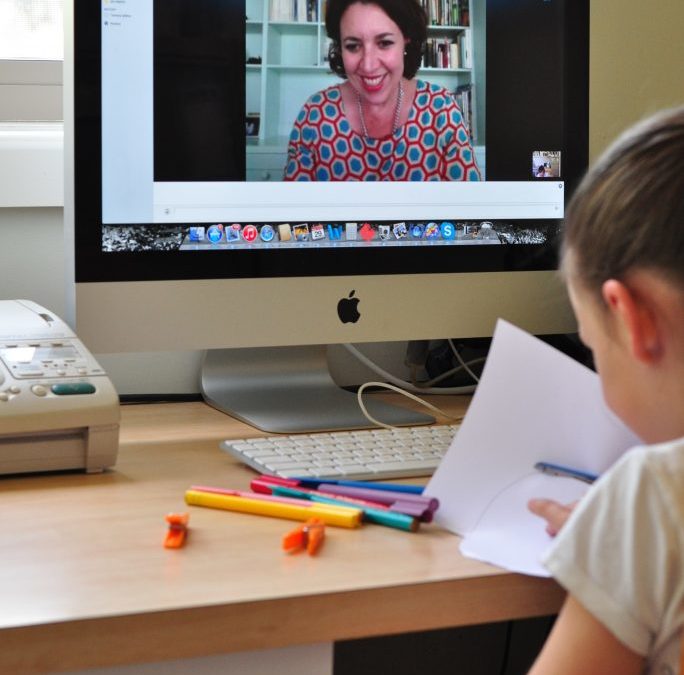By Kirstyn O’Rourke, Allied Health Manager, Therapy Connect
We all know that modern families are super busy and need to find time for work, school, sport, friends, family and each other. It’s a lot to fit in!
So, when you discover that your child would benefit from therapy, it can be an overwhelming time as parents question the best way forward and how they will commit to regular appointments.
But let’s stop there for a moment and take a big deep breath.
First we need to remember that our child’s main role as a child is to be just that. To play, explore, learn through experience and absorb the world around them. And that our role as parents is to make “being a child” possible for our kids.
During the process of accessing services and learning about our child’s needs, we can be left feeling like we have to “fix” our child as quickly as possible and that the more therapy types and frequency we can give them the better.
All children are beautiful, special and wonderful – just the way they are. It is important that we start by accepting the uniqueness of our children and ourselves, to let go of any expectations of who they can be and what they can do and just help them be the best version of themselves.
Therapy works best when it helps children reach their potential, not a developmental standard.
So, if we start by positioning therapy as a helpful tool to support your child, then you the parent can take a leading role as your child’s advocate.
This means that you get to decide, in partnership with your therapy team, what works best for your child, for you and for your family so that you all benefit from the therapeutic process – rather than feel stressed out by squeezing in a bunch of appointments!
We encourage you to take a lead role in communicating and planning the wants / needs of your child and family so that therapy can be incorporated into your schedule in ways that are flexible and add value.
Different ways to approach therapy
At Therapy Connect we don’t jam-pack your diary with lots of appointments and homework. We take the time to get to know you and plan the support that will best suit your child and your family. We identify an important person in the child’s life who can facilitate therapy sessions and learn how to incorporate strategies into everyday routines.
Therapy could look like:
- Weekly, fortnightly or monthly therapy sessions
- Altering the time and frequency of sessions
- Sessions that are half with your child and half with you so you gain knowledge and skills as well
- Combined therapy sessions with your speech and occupational therapist, so your child only needs to be available for one appointment when both therapists can review progress and advise about the next steps
- Incorporating therapy into events, activities and already established routines. For example mealtimes, playing in the park, feeding the family pets or visiting friends or family members
- Meetings with you and your child’s teacher, or other people involved in your child’s development, to create a coordinated support plan for home and school
- Therapy sessions that prepare your child for fun activities or sport
- Group activities with siblings or peers to create skills, bonds and understanding
- Joint sessions with your GP or other therapists to maximise therapy time and collaboration
- Fun sessions with an aunt, uncle, grandparent or carer to create shared experiences across a broader support group
- Alternating therapy in blocks allowing you to focus on one aspect or goal at a time
- School holiday appointments with lots of space for down time
Some children thrive when things are predictable and others thrive when they have less structure. So keep communicating with your therapist to achieve the right balance and change the plan as needed.
And remember – overscheduling doesn’t allow for creative problem solving. It is completely acceptable and understandable if you need to have a break, prioritise one goal at a time, see one therapist at a time and / or seek practical homework that is embedded in daily life and routines to save time while building new skills.
Your therapist is a compassionate person (and often also a parent), and they understand what it is to have a busy household with lots of priorities.
Bring on the fun!
We all know that kids love to play! So, what could be better than some fun activities to make the most of family time (with some personal growth benefits thrown in for good measure)?
Here are 10 fun activities to try at home to integrate therapy and play and get everybody smiling:
- Family movie nights where the kids choose the G or PG movie
- Game night where the kids choose the game
- Dress up Mum or Dad for dinner
- Teddy hide and seek
- Mystery food taste (no chilli!)
- Swap roles for 30 minutes
- Restaurant at home (kids create menu and serve)
- Pizza blanket wrap (pretend you are making a pizza and your child is the dough)
- Furniture tent fort
- “Freezing, colder, warmer, hotter, boiling” hiding game
Hint: share this list with your kids and ask them what they want to try and be open to other ideas!
About Kirstyn
Hi I’m Kirstyn O’Rourke. I have been a Speech Pathologist for over 20 years and am the Allied Health Manager at Therapy Connect. Plus I’m Mum to two very active boys aged 9 and 10.
At Therapy Connect we have over 70 Speech Pathologists, Occupational Therapists, Physiotherapists, Psychologists and a Dietitian. We work with families across Australia and all of our therapy services are delivered conveniently through telehealth.
We recognise that you are the expert about your child and we work with you to help your child learn and gain new skills naturally without impacting their most important role – being a kid.




